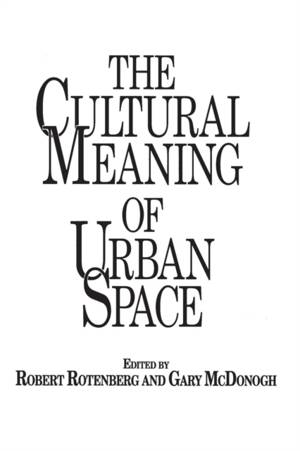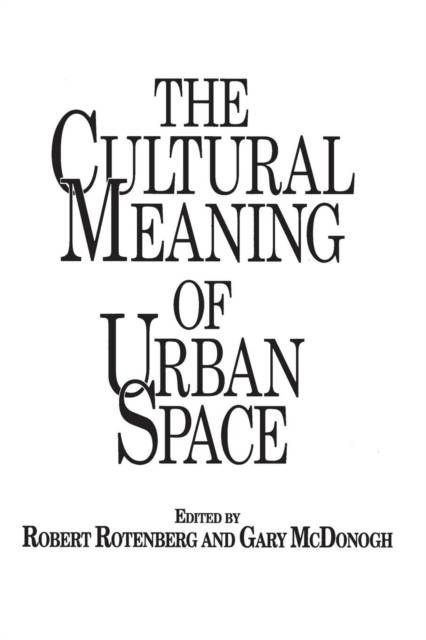
- Afhalen na 1 uur in een winkel met voorraad
- Gratis thuislevering in België vanaf € 30
- Ruim aanbod met 7 miljoen producten
- Afhalen na 1 uur in een winkel met voorraad
- Gratis thuislevering in België vanaf € 30
- Ruim aanbod met 7 miljoen producten
Omschrijving
This book presents a cross-cultural approach to the study of urban space. Essays written by major contributors in contemporary urban studies provide a range of case studies from Asia, Latin America, North America, and Europe to address important questions about space and power, processes of change, aesthetics and attitudes toward space, and social divisions expressed through urban life. The essays fall into three interlocking sections: conceptual and linguistic approaches to urban space; visual and social examinations of world cities; and policy examinations of spatial analyses. Together with the jointly compiled bibliography, this collection of essays is designed to stimulate comparative debate and identify new areas for urban research.
Essays contrast empty space in Barcelona and Savannah, explore the concept of healthy and unhealthy urban environments in the classical writings and in modern-day Vienna, and develop a model of space for Shanghai from the point of view of privacy. The subcultural ethos characterizing Tokyo and the castle as a symbol for the community in Japan are two more essay topics. The plaza in Spanish-American towns, the outdoor spaces in Italy (balcony, street, courtyard), and the school in Honduras are sites for socio-cultural analyses in three more essays. The last group of essays focus on discourses in urban planning, especially the responses of people to the growth, marketing, and decay of residential places. African-American neighborhoods and waterfront development provide examples for this section. These essays in their theoretical and geographical breadth make significant strides in defining the cultural meaning of urban space. They will be read with interest by city planners, ecologists, and other social scientists involved in finding human solutions to the metropolitan environment.Specificaties
Betrokkenen
- Auteur(s):
- Uitgeverij:
Inhoud
- Aantal bladzijden:
- 248
- Taal:
- Engels
- Reeks:
Eigenschappen
- Productcode (EAN):
- 9780897893206
- Verschijningsdatum:
- 30/04/1993
- Uitvoering:
- Paperback
- Formaat:
- Trade paperback (VS)
- Afmetingen:
- 151 mm x 231 mm
- Gewicht:
- 376 g

Alleen bij Standaard Boekhandel
Beoordelingen
We publiceren alleen reviews die voldoen aan de voorwaarden voor reviews. Bekijk onze voorwaarden voor reviews.











